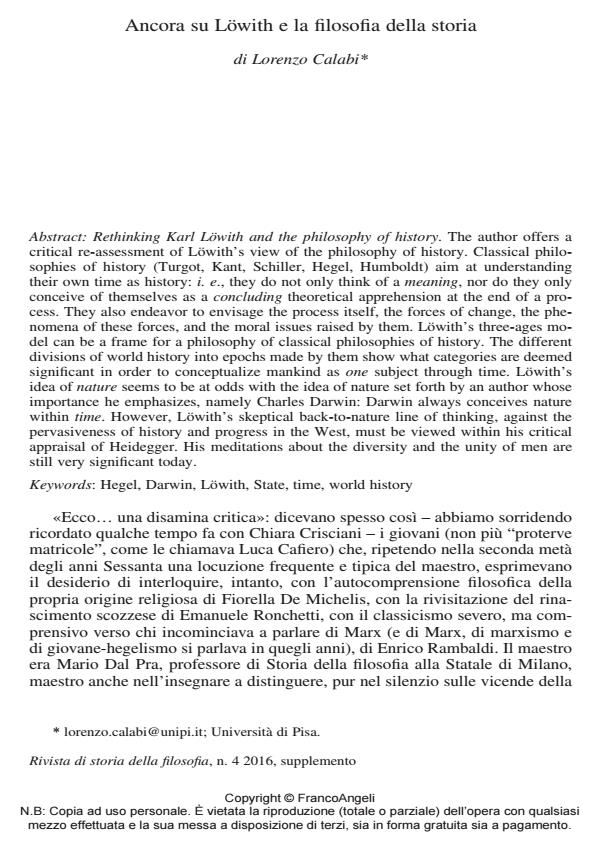Ancora su Lowith e la filosofia della storia
Titolo Rivista RIVISTA DI STORIA DELLA FILOSOFIA
Autori/Curatori Lorenzo Calabi
Anno di pubblicazione 2016 Fascicolo 2016/suppl. 4
Lingua Italiano Numero pagine 17 P. 321-337 Dimensione file 122 KB
DOI 10.3280/SF2016-004-S1022
Il DOI è il codice a barre della proprietà intellettuale: per saperne di più
clicca qui
Qui sotto puoi vedere in anteprima la prima pagina di questo articolo.
Se questo articolo ti interessa, lo puoi acquistare (e scaricare in formato pdf) seguendo le facili indicazioni per acquistare il download credit. Acquista Download Credits per scaricare questo Articolo in formato PDF

FrancoAngeli è membro della Publishers International Linking Association, Inc (PILA), associazione indipendente e non profit per facilitare (attraverso i servizi tecnologici implementati da CrossRef.org) l’accesso degli studiosi ai contenuti digitali nelle pubblicazioni professionali e scientifiche.
The author offers a critical re-assessment of Lowith’s view of the philosophy of history. Classical philosophies of history (Turgot, Kant, Schiller, Hegel, Humboldt) aim at understanding their own time as history: i. e., they do not only think of a meaning, nor do they only conceive of themselves as a concluding theoretical apprehension at the end of a process. They also endeavor to envisage the process itself, the forces of change, the phenomena of these forces, and the moral issues raised by them. Lowith’s three-ages model can be a frame for a philosophy of classical philosophies of history. The different divisions of world history into epochs made by them show what categories are deemed significant in order to conceptualize mankind as one subject through time. Lowith’s idea of nature seems to be at odds with the idea of nature set forth by an author whose importance he emphasizes, namely Charles Darwin: Darwin always conceives nature within time. However, Lowith’s skeptical back-to-nature line of thinking, against the pervasiveness of history and progress in the West, must be viewed within his critical appraisal of Heidegger. His meditations about the diversity and the unity of men are still very significant today.
Parole chiave:Hegel, Darwin, Lowith, State, time, world history
- Karl Löwith Mike Rottmann, pp.237 (ISBN:978-3-476-05743-3)
Lorenzo Calabi, Ancora su Lowith e la filosofia della storia in "RIVISTA DI STORIA DELLA FILOSOFIA" suppl. 4/2016, pp 321-337, DOI: 10.3280/SF2016-004-S1022